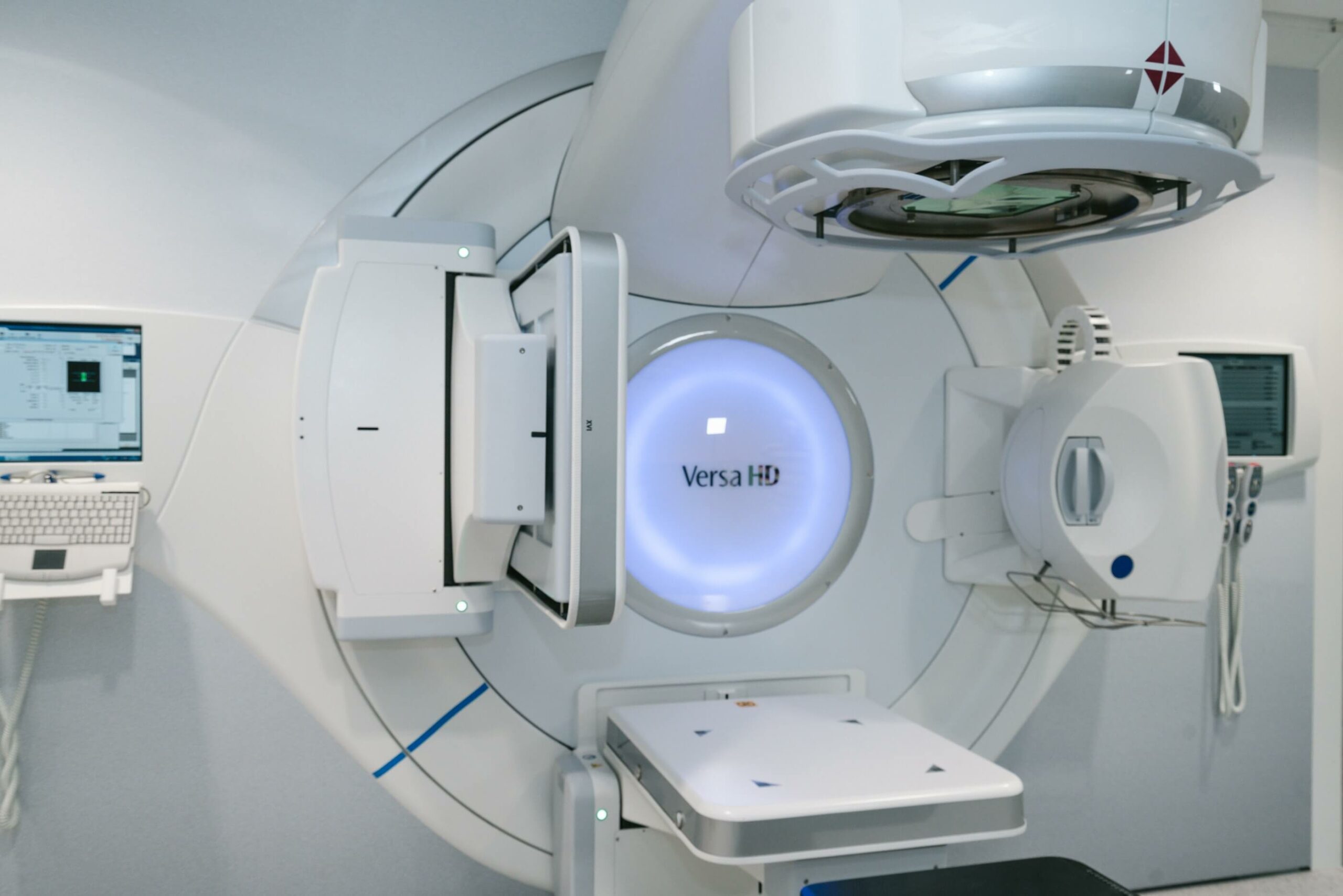Radiotherapy, also called radiation therapy, is a type of cancer treatment that uses high-energy radiation to destroy cancer cells by damaging cancer cell DNA.
Radiation is delivered to the affected area, either externally or internally. External beam radiotherapy directs radiation from a machine outside the body, while internal radiotherapy, or brachytherapy, places a radioactive source near the tumour.
It is usually given over multiple sessions, allowing healthy cells to recover.
Radiotherapy can be used alone or with surgery, chemotherapy, or targeted therapies. Its aim is to remove or shrink tumours, ease symptoms, or prevent cancer from returning.
What Are The Side Effects Of Radiotherapy?
Most patients experience some side effects during or after treatment. Acute side effects occur during or shortly after treatment and are usually temporary. Late or long-term side effects can happen months to years later but are less common.
Fatigue
Fatigue is a common side effect, causing physical or mental exhaustion. It can worsen during treatment and last for weeks or months after. Rest and conserving energy, along with gentle exercise, can help.
Skin Reactions
Skin reactions, similar to sunburn, can occur, making the skin sore, dry, itchy, or blistered. Changes in skin colour are also possible.
Hair Loss
Hair loss may happen in the treated area but usually grows back after treatment.
Stomach Upsets, Nausea And Appetite Changes
Nausea, vomiting, and digestive issues like diarrhoea or constipation can occur, especially with abdominal or brain-targeted radiotherapy. These can often be managed with medication.
Appetite changes and weight loss are possible, along with mouth sores, taste changes, and dry mouth with head or neck radiotherapy. A balanced diet is important, and a nutritionist or dietitian can provide guidance.
Lymphedema
Lymphedema is when tissues become swollen due to the buildup of lymph fluid. This usually happens around areas where lymph nodes are damaged or removed. Lymphedema causes pain and swelling.
Fertility Problems
Sexual and fertility problems can arise, particularly if treatment is near the pelvic area or pituitary gland. Common side effects include:
- Loss of libido
- Erectile dysfunction
- Vaginal dryness or narrowing
- Early menopause
- Infertility
It's crucial to discuss these risks with your doctor, and fertility preservation measures may be recommended.
Increased Risk Of Cancer Later In Life
Radiotherapy slightly increases the risk of developing another cancer later in life. However, the benefits of treatment usually outweigh this small risk.
Decreased Mental Wellbeing
Radiotherapy can also impact your mental well-being, so it's important to seek support from healthcare providers and loved ones if you're struggling.
Weighing The Potential Side Effects Against The Benefits
Radiotherapy is a powerful tool against cancer but can present with unpleasant side effects.
Many side effects can be treated or prevented and typically go away after treatment. Each person's experience may differ, and your medical team will explain the relevant side effects of your specific treatment.


 71–75 Shelton Street, Covent Garden, London, WC2H 9JQ
71–75 Shelton Street, Covent Garden, London, WC2H 9JQ +44 (0) 20 3376 1032
+44 (0) 20 3376 1032



